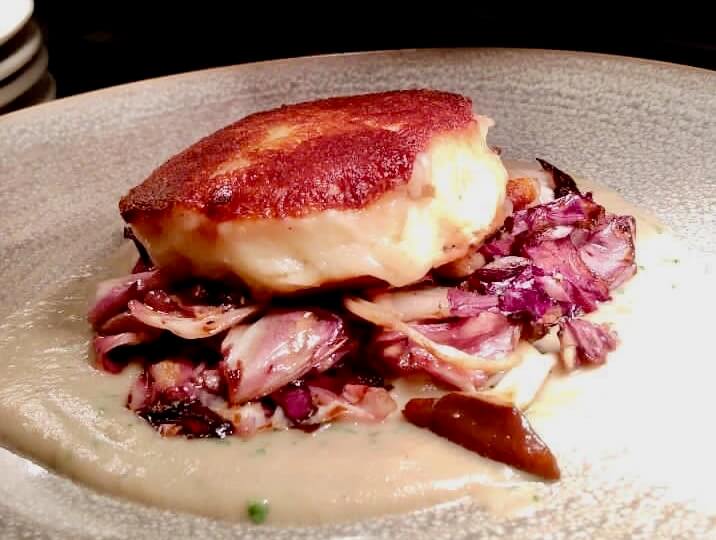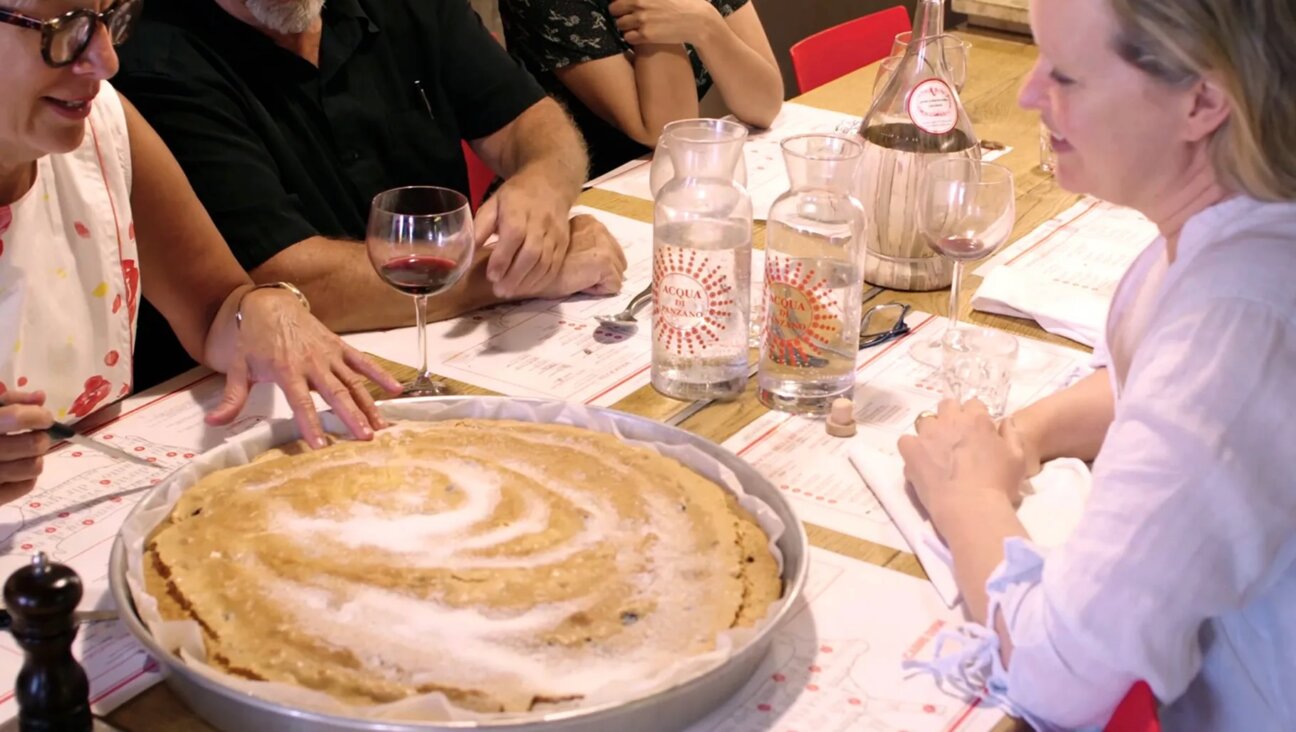Remembering the Fallen Through a Mom’s Recipes


Personal Challah Recipe: Dalia Emanuelof, mother of Dvir Emanuelof whose picture appears framed on the table, makes challah with Bette Brottman of East Windsor, New Jersey.
“There’s no joy. There isn’t a lot of strength. Everything is dead inside,” said Dina Kit about the emotional experience of losing a child. Kit speaks from personal experience, having lost one son to cancer and another, an Israel Defense Forces soldier, to a terrorist attack.
One of the things Kit and other mothers are not usually able to bring themselves to do in the wake of their children’s deaths is to cook their sons’ and daughters’ favorite foods. The tastes and smells, and even the going through the motions of the preparation of the dishes, are too overwhelming. “We cry when we prepare the food,” Kit told The Jew and the Carrot in a phone conversation from her home in Jerusalem.
However, Kit, who used to make meat kebabs on a bed of mashed potatoes and spinach for her fallen son Ofir, kept coming back to the notion that food might be the best way to memorialize her children. “I wanted to write a book that utilized food as a way of remembering,” she said.
She didn’t have to go far to find other mothers interested in this special project. Kit, the office manager for OneFamily, an organization that helps Israeli victims of terror rebuild their lives, unfortunately had plenty of women to consult. She made her first inquiries a little over two years ago, and today she has a collection of 122 recipes, each from a different bereaved Israeli mother. Each of them has contributed food-related recollections and biographical information on their dead child to accompany their recipe.
Work is underway to compile the recipes, which cover everything from appetizers to desserts, into a 160-page cookbook. “We have some of the material already in Hebrew, but we are fundraising now to publish a first edition in English,” noted Rachel Moore, a spokesperson for OneFamily. “It’s really a lot of work to put out a cookbook, and I’m glad for any assistance on the project, as my energy level goes up and down, as you can imagine,” Kit shared.
Merely the act of submitting a recipe to the project has encouraged some mothers to start cooking or baking their deceased children’s favorite dishes again, like mejadara (traditional Sephardic rice with lentils), Moroccan (spicy) fish, Bolognese sauce, and stuffed grape leaves. Etti Turgeman is back to making her son Erez’s favorite cold no-bake biscuit cake, and Dalia Emanuelof is once again expertly baking challah for Shabbat, as she did when her son Dvir was still alive. Others have returned to the kitchen by teaching cooking workshops Kit has organized for women on group trips to Israel who come to learn more about the work of OneFamily.
Paula Ostroff, associate director of the Shalom Heritage Center in East Windsor, New Jersey, was on one such trip organized by the Jewish Women’s Renaissance Project in May. Twelve New Jersey women joined 40 women from South Africa for a cooking workshop led by Kit and five other moms who had lost children to terrorism.
“It was some of the best food I had ever tasted,” Ostroff recalled. “There were different stations. At one we cooked latkes (I learned that the trick is to parboil the potatoes), and at another there was something that was a cross between a calzone and empanada stuffed with vegetables. There was also a delicious cheesecake that was made from off-the-shelf ingredients and this white cheese you can only get in Israel, and a lentil and rice dish that was so simple, yet so tasty and filling.” She also recalled that at one station there was a woman baking challah in very elaborate designs.
“There was a bit of a language barrier, but food has its own language. The food is a way of working through grief,” Ostroff reflected. “That day was the most emotional of our trip. I remember walking out of the building after the cooking and being so grateful that my biggest problem is that my eight-year-old only wants to eat Wacky Mac. My child may only want to eat carbs, but at least I have my child.”
According to Moore, OneFamily is in the process of raising the $15,000 needed to publish the cookbook, which the organization considers an important tool in the healing process. “The children live on through the stories the mothers remember and tell as they prepare and serve the food, even more than through the actual recipes themselves,” Moore said.
Meat Kababs on a Bed of Mashed Potatoes and Spinach
Recipe from Dina Kit in memory of her son Ofir
4-5 portions
Kebabs:
1 pound ground beef
2 medium onions, finely chopped
3 cloves of garlic, crushed
3 tablespoons of parsley, chopped
1 teaspoon of salt
Black pepper to taste
¼ cup oil for frying
Vegetable Bed:
4 medium potatoes, peeled and boiled
Salt to taste
1 medium onion, cut into strips
2 pounds fresh spinach leaves, washed well, roughly chopped
1) In a large bowl, mix all of the kebab ingredients until the mixture is uniform. Roll into egg‐shaped rolls about 8 cm long. Heat oil in a pan and fry the kebabs on all sides until brown.
2) Mash the potatoes in a midsize bowl. Season with salt and mix into a uniform mash. Saute the onion with a tablespoon of oil until golden, add the chopped spinach, mix and continue to saute another 5 min.
3) Place the potatoes on a dish, make a depression in the middle and pour the spinach into the depression. Place the kebabs on top.
A message from our Publisher & CEO Rachel Fishman Feddersen

I hope you appreciated this article. Before you go, I’d like to ask you to please support the Forward’s award-winning, nonprofit journalism during this critical time.
We’ve set a goal to raise $260,000 by December 31. That’s an ambitious goal, but one that will give us the resources we need to invest in the high quality news, opinion, analysis and cultural coverage that isn’t available anywhere else.
If you feel inspired to make an impact, now is the time to give something back. Join us as a member at your most generous level.
— Rachel Fishman Feddersen, Publisher and CEO
























